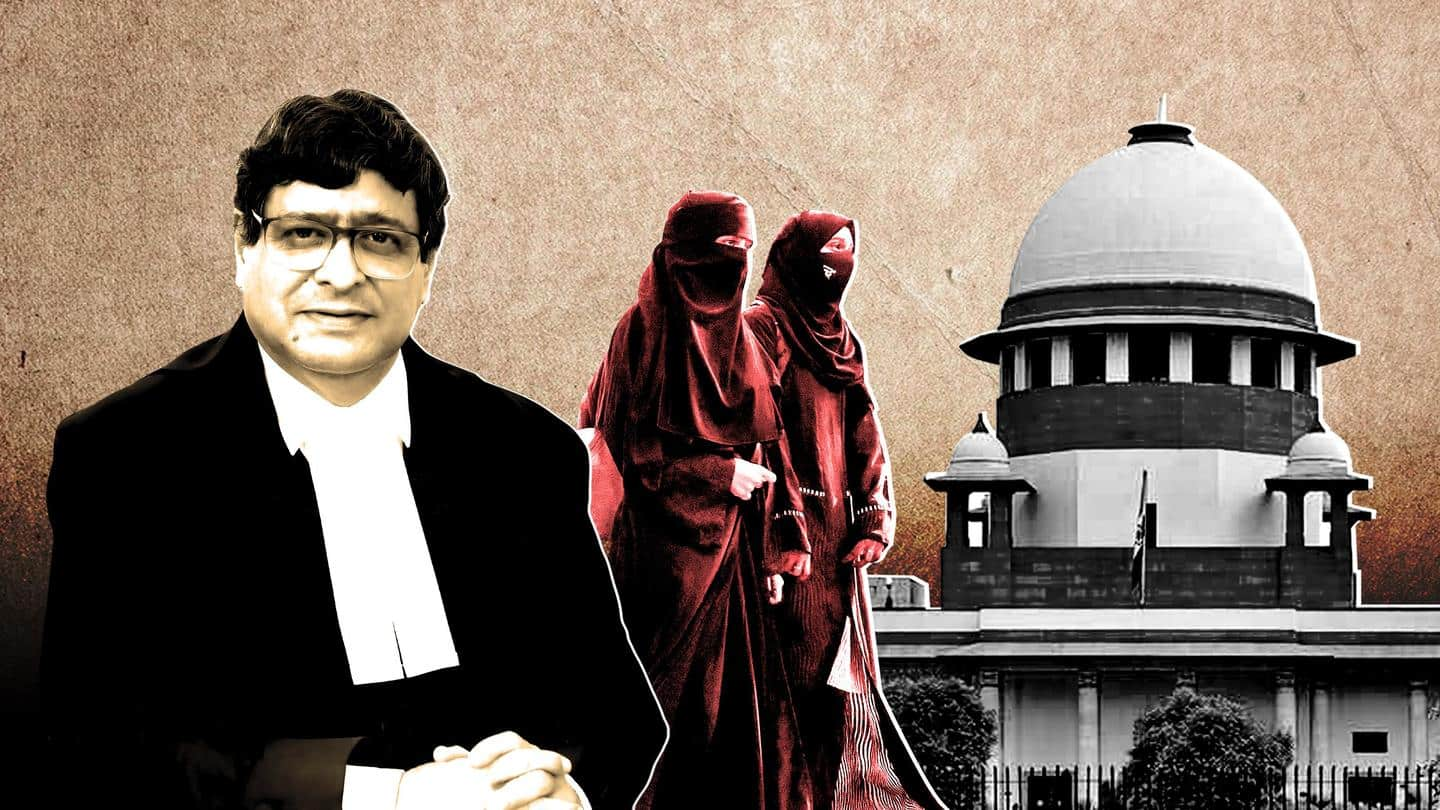Hijab row case: SC questions Karnataka HC's judgment banning hijab
What's the story
The Supreme Court remarked on Tuesday the Karnataka High Court erred in addressing the essential religious practice issue in the hijab row case.
It noted the HC's decision to uphold the hijab ban in Karnataka's educational institutions was based on a student's term paper rather than the actual text in the Quran.
The SC was hearing a batch of petitions against the HC's judgment.
Context
Why does this story matter?
The hijab ban in Karnataka's educational institutions sparked an intense nationwide debate earlier this year.
Some asserted the ban was in line with maintaining a uniform dress code at educational institutions as they are no place to practice religion.
However, those criticizing the prohibition said the hijab is an essential religious practice, alleging Muslims were being singled out. Later, the issue reached the SC.
Remarks
What exactly did the SC say?
A bench—comprising Justices Hemant Gupta and Sudhanshu Dhulia—was hearing the petitions on Tuesday.
Referring to the HC's decision, Dhulia orally remarked, "High Court shouldn't have gone into essential religious practice test. They have relied on a term paper of a student...they have not gone to the original text."
"The other side is giving another commentary. Who will decide which commentary is right?" he added.
Argument
What did Solicitor General say?
Following Dhulia's remarks, Solicitor General (SG) Tushar Mehta, who was representing the Karnataka government, candidly agreed that the high court could have avoided addressing the essential religious practice issue in the matter, reported Live Law.
The SG, however, acknowledged that it was the petitioners who approached the court and presented an argument that the hijab was a necessary religious practice.
Details
The HC referred to this essay before its judgment
To note, the Karnataka HC reportedly referred to an essay titled "Veiled Women: Hijab, Religion and Cultural Practice," among other things, before giving its judgment, upholding the hijab ban, in March this year.
Based on the same, it maintained the hijab is a cultural practice but not an essential religious practice. The essay was written by Illinois's Sara Slininger, a college student, in 2013.
Comments
'Mere mention in Quran will not make the practice essential'
The SC also noted that the petitioners have identified specific verses from the Quran concerning the hijab practice.
To this, Mehta responded that just because something is mentioned in the Quran, it does not automatically become essential.
"They have to show it is so compelling... [Hijab] can be a permissible practice or at best an ideal practice but not an essential practice," Mehta said.
Background
What is the hijab controversy?
On December 28, 2021, six girl students of the government-run PU College in Udupi, Karnataka, were reportedly denied admission to classes because they were wearing a hijab.
They protested and later filed a petition before the HC. The hijab dispute soon spread to other places in Karnataka, too.
The matter was then referred to a three-judge bench of the high court in February.
Details
What did the Karnataka High Court rule?
The Karnataka High Court later declined to allow female Muslim students to wear the hijab on March 15, backing the state government's ban.
It dismissed petitions challenging the prohibition on hijab at educational institutions, stating that wearing hijab is not a required religious practice of Islam.
The court ruled that wearing a school uniform is a fair restriction to which female students cannot object.
